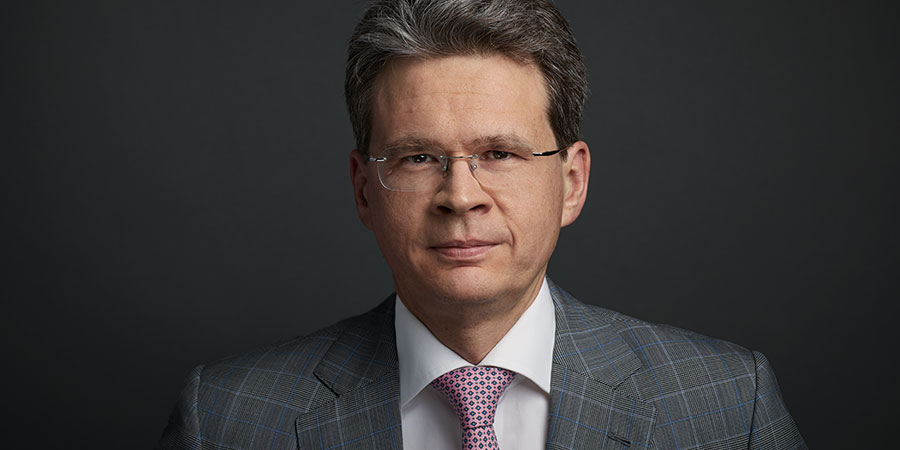Jupiter AM Appoints Six New Analysts for its Sustainable Investment Teams
| By Beatriz Zúñiga | 0 Comentarios

Jupiter AM has announced in a press release the hiring of six new analysts within its sustainable investing strategies, doubling the size of the existing resources and “adding fresh investment expertise to key portfolios”.
The asset manager has highlighted that its sustainability suite of funds offers clients a range of differentiated investment options with a shared goal of generating attractive returns through long-term sustainable investing. Following a strategy refresh earlier this year, Abbie Llewellyn-Waters was appointed as Head of Sustainable Investing, working with Rhys Petheram, Head of the Environmental Solutions team.
The firm is now strengthening its offering with the appointment of new analysts. Specifically, Maiken Anderberg joins the Global Sustainable Equity team as Equity Analyst. Having previously interned with Jupiter’s Sustainable Investing team in 2018, she is returning to the company in a new permanent role, working closely with Abbie Llewellyn-Waters and analyst Freddie Woolfe with a dedicated focus on the Jupiter Global Sustainable Equities strategy
The Jupiter Global Sustainable Equities strategy was launched in 2018 to offer clients an alternative to mainstream global equities by combining financial returns with positive environmental and social returns – enabling clients to participate in the transition to a more sustainable world.
Joining Jupiter in a newly created role, Noelle Guo has been appointed Equity Analyst of Environmental Solutions. Supporting fund manager Jon Wallace and reporting into Petheram, she will work across the equity strand of Jupiter’s environmental solutions suite. Guo has eight years of equity research experience, joining from an Investment Analyst role at Pictet Asset Management before which she was at AB Bernstein as a Senior Research Associate.
Laura Conigliaro has been named Analyst of the Environmental Solutions team. Having joined Jupiter in 2019 as a member of Jupiter’s Governance and Sustainability team, she will now work directly with fixed income specialist Petheram with a particular focus on fixed income verification, also providing sustainability research into the desk’s environmental impact themes. Prior to joining Jupiter, Conigliaro has held roles at the Inter-American Development Bank and sustainability management consultancy Critical Resource.
Jupiter’s Environmental Solutions suite of funds boasts a 33-year track record and over 890 million pounds in AUM across the Jupiter Global Ecology Growth and Jupiter Global Ecology Diversified funds, and UK onshore vehicles. The strategy looks to invest in companies intentionally focused on providing solutions to sustainability challenges across key environmental themes.
In an internal move, Jenna Zegleman joins the teams as Investment Director. Having arrived at Jupiter in 2018 as a product specialist, she will provide client-facing support across the full range of portfolios in the Sustainable Investing suite.
In addition to these hires, Anisha Arora and James Kearns have joined Jupiter’s Governance and Sustainability team. An emerging markets economist and strategist with 10 years’ experience across sell side research and buy side asset management, Arora joins from Allianz Global Investors and has experience in applying ESG considerations to macroeconomic analysis, as well as to the sovereign debt investment process. Kearns joins Jupiter from BNP Paribas, where he worked initially in CSR within their Global Markets division before moving to become a Sustainable Finance Analyst.
“As we navigate through this global pandemic, the importance of confronting the climate crisis, bridging social inequality and ensuring a sustainable future is more important than ever. By investing in companies leading a sustainable transition across our Global Sustainable Equities and Environmental Solutions strategies we are able to offer our clients a range of attractive and truly innovative solutions that deliver positive outcomes for planet, people and profit”, Abbie Llewellyn-Waters, Head of Sustainable Investing, commented.
Meanwhile, Stephen Pearson, CIO, added: “We are pleased to make these appointments to the team as we continue to grow Jupiter’s sustainability suite, helping us continue to innovate and build on our long heritage of sustainable investing. We are delighted to be making these appointments at this important point in time, cementing support for these key strategies with the addition of specialist insight and investment expertise.”











